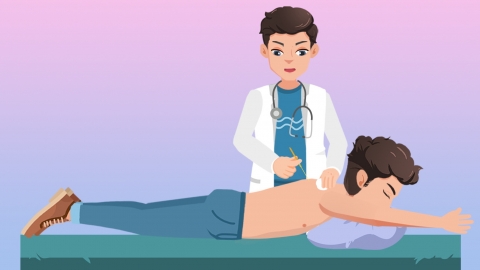Can acupuncture treat lumbar disc herniation?
Generally speaking, lumbar disc herniation usually refers to lumbar intervertebral disc herniation. Whether acupuncture can treat lumbar intervertebral disc herniation depends on the specific circumstances. If it is mild lumbar intervertebral disc herniation, acupuncture usually can be effective; however, for moderate to severe cases, the effectiveness may be relatively limited. Detailed analysis is as follows:

For individuals with mild lumbar intervertebral disc herniation, acupuncture treatment can achieve relatively significant results. Acupuncture can stimulate acupoints around the waist, such as Shenshu (BL23), Dachangshu (BL25), and Huantiao (GB30), which are closely related to the nerves and muscles in the waist area. By stimulating these acupoints, acupuncture can promote local blood circulation, relieve muscle tension, reduce nerve root compression, and thereby alleviate symptoms such as low back pain and leg numbness. The effects of acupuncture in relaxing muscles, activating blood circulation, removing blood stasis, reducing swelling, and relieving pain can be well demonstrated in such patients.
For patients with moderate to severe lumbar intervertebral disc herniation, the effectiveness of acupuncture may be relatively limited. This is because moderate to severe lumbar disc herniation is often accompanied by significant nerve compression and inflammatory responses, and simple acupuncture treatment may not fully relieve the compression or eliminate the inflammation. In such cases, acupuncture can be used as part of a comprehensive treatment plan, combined with medication, physical therapy, traction, and other treatments, to enhance therapeutic effectiveness.
Acupuncture treatment should be conducted under the guidance of a qualified physician to ensure safety. During acupuncture, needles should be sterilized at high temperatures and aseptic techniques should be used to prevent infection.








